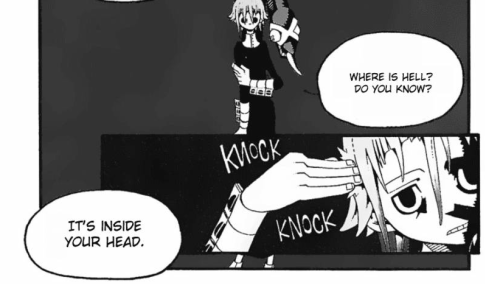Post by kristine on Sept 1, 2011 23:07:52 GMT -5
Woman Sues to Block Idaho's 'Fetal Pain' Law
She's believed to be first in country to challenge such laws
Okay - If this makes it to the supreme court then we really will have to decide when personhood legally begins.
She's believed to be first in country to challenge such laws
An eastern Idaho woman has filed what is believed to be the first lawsuit in the nation to directly challenge the constitutionality of a so-called "fetal pain" abortion ban. Jennie Linn McCormack filed suit in federal court against Bannock County's prosecuting attorney, contending Idaho's new law banning abortions after 20 weeks of pregnancy violates the Constitution.
Idaho is one of six states that have enacted such bans in the past two years. The bans are based on the premise that a fetus may feel pain at 20 weeks.
McCormack, who was briefly charged with having an illegal abortion, is seeking class-action status in her lawsuit against prosecutor Mark Hiedeman. The suit also challenges other parts of Idaho abortion law. McCormack was charged with a felony in June after police said she took pills to terminate her pregnancy last December. Police found the fetus in a box at McCormack's Pocatello home Jan. 9, and an autopsy determined it was between five and six months gestation. Police said McCormack told them she didn't have enough money to go to a licensed medical professional, so her sister helped her access abortion-inducing drugs online.
A judge later dismissed the criminal case without prejudice for lack of evidence. That means the prosecutor may refile charges if he chooses, unless the federal courts stop him from doing so. In the lawsuit, McCormack challenges the lack of access to abortions for women in her region, as well as the ban on abortions after 20 weeks. She notes there are no elective-abortion providers in southeastern Idaho, forcing women seeking the procedure to travel elsewhere.
McCormack was unmarried and unemployed at the time of her pregnancy _ with an income of $200 to $250 a month _ and already had three children. She couldn't afford the time or money it would take to travel to Salt Lake City to get an abortion, the lawsuit says.
If McCormack prevails, it will be a win for women across the region, said her attorney, Richard Hearn of Pocatello. "If we're successful, they'll be able to access legal and safe abortions in southeastern Idaho," whether performed with medicine or surgically in a clinic, Hearn said Wednesday.
Hiedeman could not be immediately reached for comment.
Idaho law bars women from getting abortions from anyone but licensed Idaho physicians, and requires that second-trimester abortions be performed in a hospital. Women who purposely cause their own abortions, or who get abortions from unlicensed physicians, face up to five years in prison and up to a $5,000 fine.
McCormack is asking a judge to find that those criminal sanctions are unconstitutional, in part because they wrongly burden women in regions like southeastern Idaho that lack abortion providers. Another Idaho law, passed during the 2011 Legislature, bans abortions once a fetus has reached 20 weeks on the belief that fetuses begin to feel pain at that stage. Idaho was one of five states _ along with Kansas, Alabama, Indiana and Oklahoma _ that enacted bans modeled after a fetal pain bill passed in Nebraska in 2010.
McCormack says the new law violates the Constitution because it doesn't contain an exception allowing for abortions if necessary to preserve the mother's health, and because it prohibits some abortions even before a fetus has reached viability. Roe v. Wade barred states from prohibiting abortions done before the age of viability, and other legal rulings have since determined viability occurs at 22 to 23 weeks gestation.
That contention echoes an opinion written by Idaho Attorney General Lawrence Wasden's office, which advised state lawmakers that the fetal pain bill could be found unconstitutional under the 14th Amendment. It's not the first time Idaho lawmakers have passed abortion laws that they were warned likely would be found unconstitutional. In the past decade, Idaho has spent more than $730,000 to defend restrictive abortion laws that ended up being struck down by courts. Those costly rulings prompted legislative leaders in recent years to require that abortion-related legislation be reviewed by the Idaho attorney general's office.
Republican state Sen. Chuck Winder, who sponsored Idaho's fetal pain legislation, didn't immediately return a phone call seeking comment.
The National Right to Life Committee said Wednesday it believes the law will be upheld. "Unborn children recoil from painful stimuli, their stress hormones increase when they are subjected to any painful stimuli, and they require anesthesia for fetal surgery," the group's legislative director, Mary Spaulding Balch, said in a statement. "We are confident that the Supreme Court will ultimately agree and will recognize the right of the state to protect these children from the excruciatingly painful death of abortion."
Janet Crepps, director of the U.S. legal program for the Center for Reproductive Rights, said laws like fetal pain bills are both unconstitutional and bad policy. They also are "demeaning to women and their doctors" because they don't take into account how each woman's situation is different, she said. "When you think about all the regulations that are piled onto abortion, it just clearly becomes impossible for doctors to provide them and women to receive them in a situation like McCormack's," Crepps said. "It's a really sad situation."
Idaho is one of six states that have enacted such bans in the past two years. The bans are based on the premise that a fetus may feel pain at 20 weeks.
McCormack, who was briefly charged with having an illegal abortion, is seeking class-action status in her lawsuit against prosecutor Mark Hiedeman. The suit also challenges other parts of Idaho abortion law. McCormack was charged with a felony in June after police said she took pills to terminate her pregnancy last December. Police found the fetus in a box at McCormack's Pocatello home Jan. 9, and an autopsy determined it was between five and six months gestation. Police said McCormack told them she didn't have enough money to go to a licensed medical professional, so her sister helped her access abortion-inducing drugs online.
A judge later dismissed the criminal case without prejudice for lack of evidence. That means the prosecutor may refile charges if he chooses, unless the federal courts stop him from doing so. In the lawsuit, McCormack challenges the lack of access to abortions for women in her region, as well as the ban on abortions after 20 weeks. She notes there are no elective-abortion providers in southeastern Idaho, forcing women seeking the procedure to travel elsewhere.
McCormack was unmarried and unemployed at the time of her pregnancy _ with an income of $200 to $250 a month _ and already had three children. She couldn't afford the time or money it would take to travel to Salt Lake City to get an abortion, the lawsuit says.
If McCormack prevails, it will be a win for women across the region, said her attorney, Richard Hearn of Pocatello. "If we're successful, they'll be able to access legal and safe abortions in southeastern Idaho," whether performed with medicine or surgically in a clinic, Hearn said Wednesday.
Hiedeman could not be immediately reached for comment.
Idaho law bars women from getting abortions from anyone but licensed Idaho physicians, and requires that second-trimester abortions be performed in a hospital. Women who purposely cause their own abortions, or who get abortions from unlicensed physicians, face up to five years in prison and up to a $5,000 fine.
McCormack is asking a judge to find that those criminal sanctions are unconstitutional, in part because they wrongly burden women in regions like southeastern Idaho that lack abortion providers. Another Idaho law, passed during the 2011 Legislature, bans abortions once a fetus has reached 20 weeks on the belief that fetuses begin to feel pain at that stage. Idaho was one of five states _ along with Kansas, Alabama, Indiana and Oklahoma _ that enacted bans modeled after a fetal pain bill passed in Nebraska in 2010.
McCormack says the new law violates the Constitution because it doesn't contain an exception allowing for abortions if necessary to preserve the mother's health, and because it prohibits some abortions even before a fetus has reached viability. Roe v. Wade barred states from prohibiting abortions done before the age of viability, and other legal rulings have since determined viability occurs at 22 to 23 weeks gestation.
That contention echoes an opinion written by Idaho Attorney General Lawrence Wasden's office, which advised state lawmakers that the fetal pain bill could be found unconstitutional under the 14th Amendment. It's not the first time Idaho lawmakers have passed abortion laws that they were warned likely would be found unconstitutional. In the past decade, Idaho has spent more than $730,000 to defend restrictive abortion laws that ended up being struck down by courts. Those costly rulings prompted legislative leaders in recent years to require that abortion-related legislation be reviewed by the Idaho attorney general's office.
Republican state Sen. Chuck Winder, who sponsored Idaho's fetal pain legislation, didn't immediately return a phone call seeking comment.
The National Right to Life Committee said Wednesday it believes the law will be upheld. "Unborn children recoil from painful stimuli, their stress hormones increase when they are subjected to any painful stimuli, and they require anesthesia for fetal surgery," the group's legislative director, Mary Spaulding Balch, said in a statement. "We are confident that the Supreme Court will ultimately agree and will recognize the right of the state to protect these children from the excruciatingly painful death of abortion."
Janet Crepps, director of the U.S. legal program for the Center for Reproductive Rights, said laws like fetal pain bills are both unconstitutional and bad policy. They also are "demeaning to women and their doctors" because they don't take into account how each woman's situation is different, she said. "When you think about all the regulations that are piled onto abortion, it just clearly becomes impossible for doctors to provide them and women to receive them in a situation like McCormack's," Crepps said. "It's a really sad situation."
Okay - If this makes it to the supreme court then we really will have to decide when personhood legally begins.











